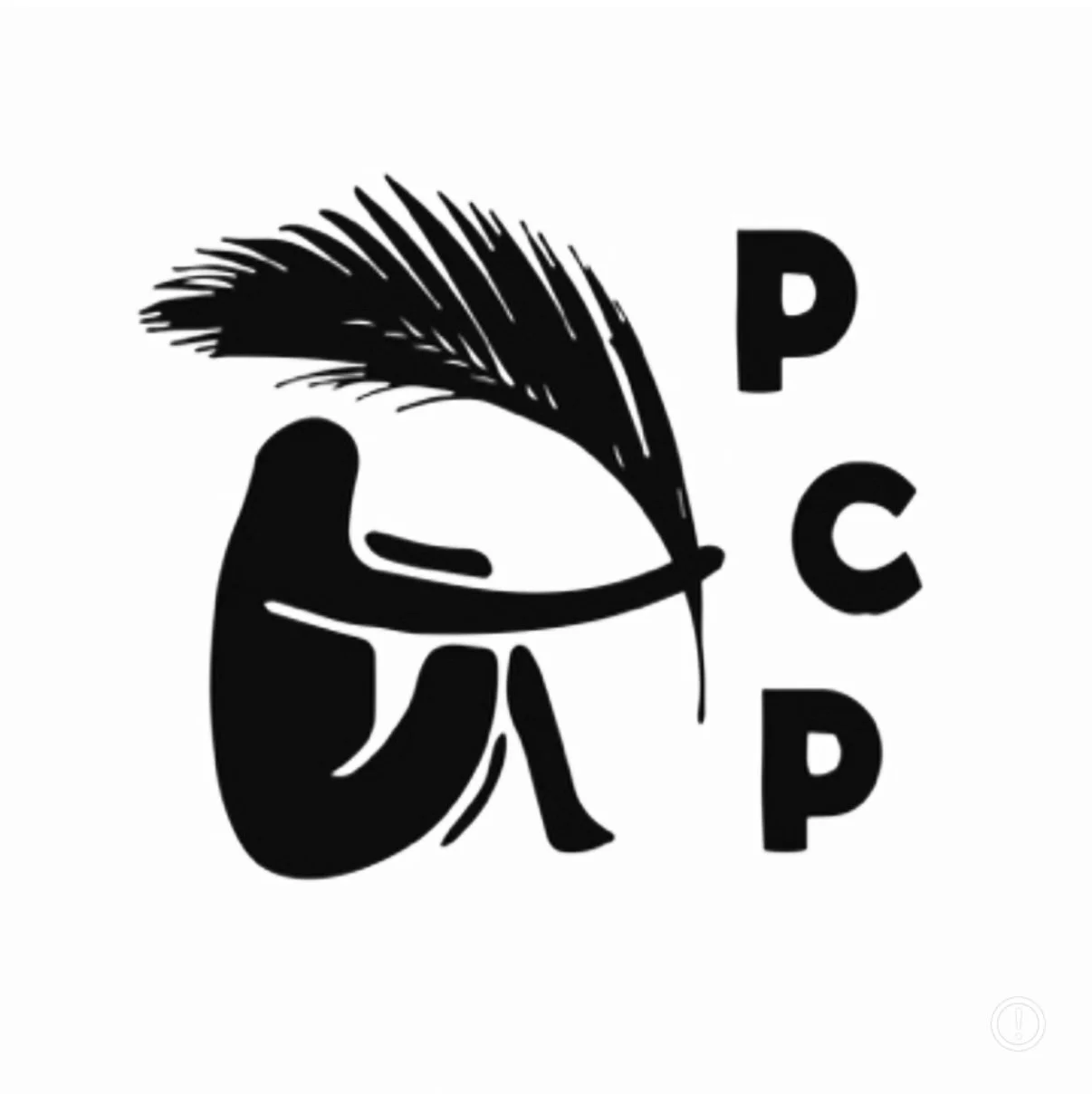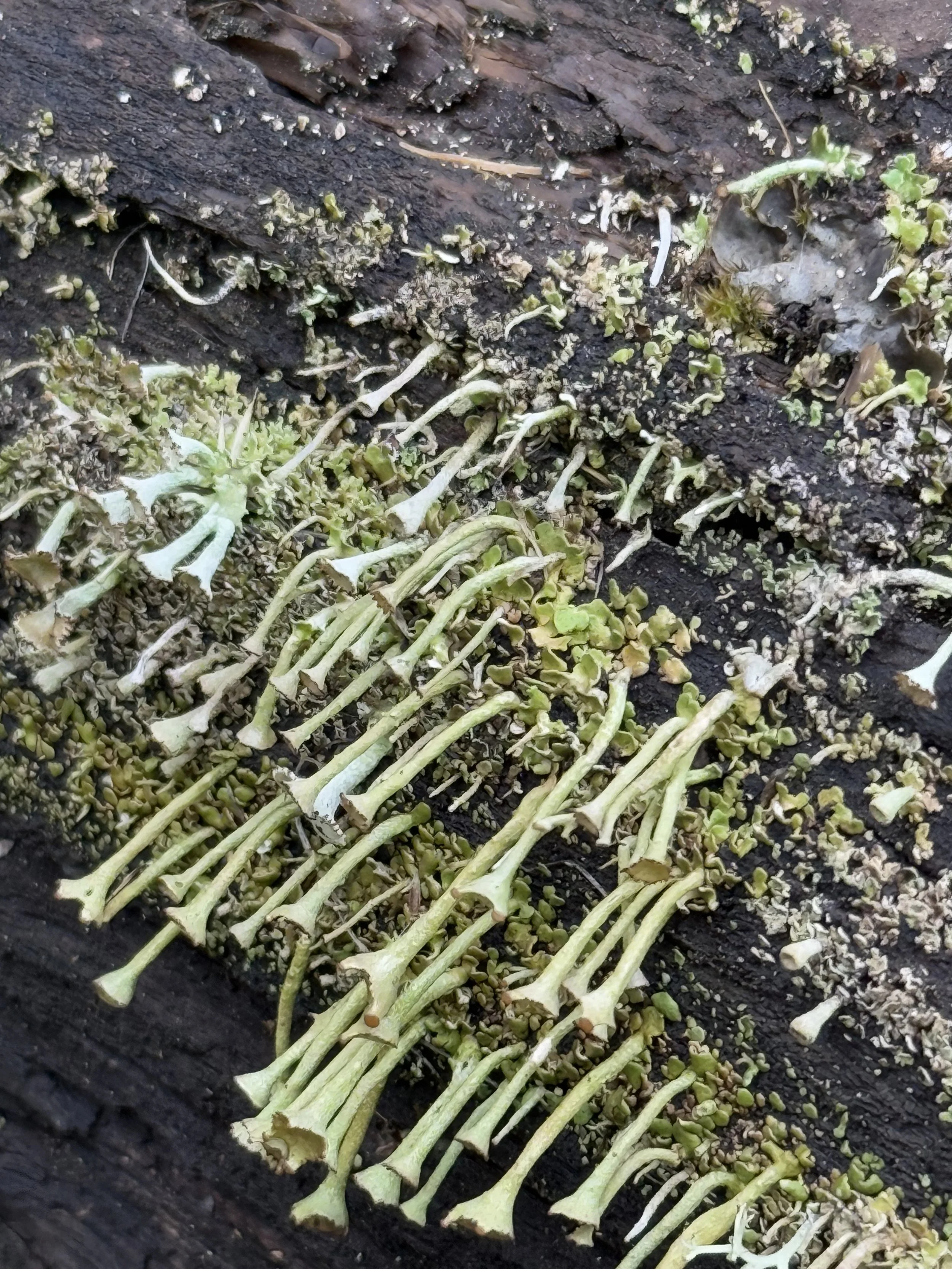establishing habitat in the garden
This tube lichen is thriving on the logs in the garden - a good sign.
Because of their sensitivity, lichens are bioindicators – living organisms that reflect the health of an ecosystem. A diverse and thriving lichen community is a message from the land that things are going well - the air is clean & overall, the environment is healthy.
Another bioindicator on the land is a healthy population of frogs & toads! (enough frogs here that I’m pretty paranoid when i have to mow - I repeatedly stop & scan the ground before moving on to the next patch of grass) Frogs are a keystone species - their presence or absence can significantly impact the ecosystem they inhabit. They absorb contaminants through their skin, making them susceptible to pollutants - because they are a water and land based species, they are exposed to a wider range of pollutants & can serve as harbingers of potential ecological problems.
A great way to start establishing habitat that supports the broader ecosystem in your garden, is to use materials that are on site & may already be harmonizing with the ecology of your location. I used the same logs that the previous residents had used in their garden - just in the new location adjacent to the greenhouse,
If you don’t have any materials on site (which is rare from my experience;) that’s OK, you can bring materials in & let time do it’s thing.
Another easy way to introduce a bit of habitat is through rocks piles. As with all things in permaculture design, the utility of these piles are multifunctional (such as slowing & directing water) and I think they are a pretty feature. They add a sense of grounded permanence.
As a habitat feature, all the nooks & crannies give frogs & other creatures a safe shady respite. Protection from the elements & predators, thermal regulation, overwintering…a simple grouping of rocks can be a boon to your garden.
All gardens benefit from biological diversity so including habitat features in your garden design is a good start to creating a garden ecosystem- where all the components work together to sustain the ecological community (your garden!)




